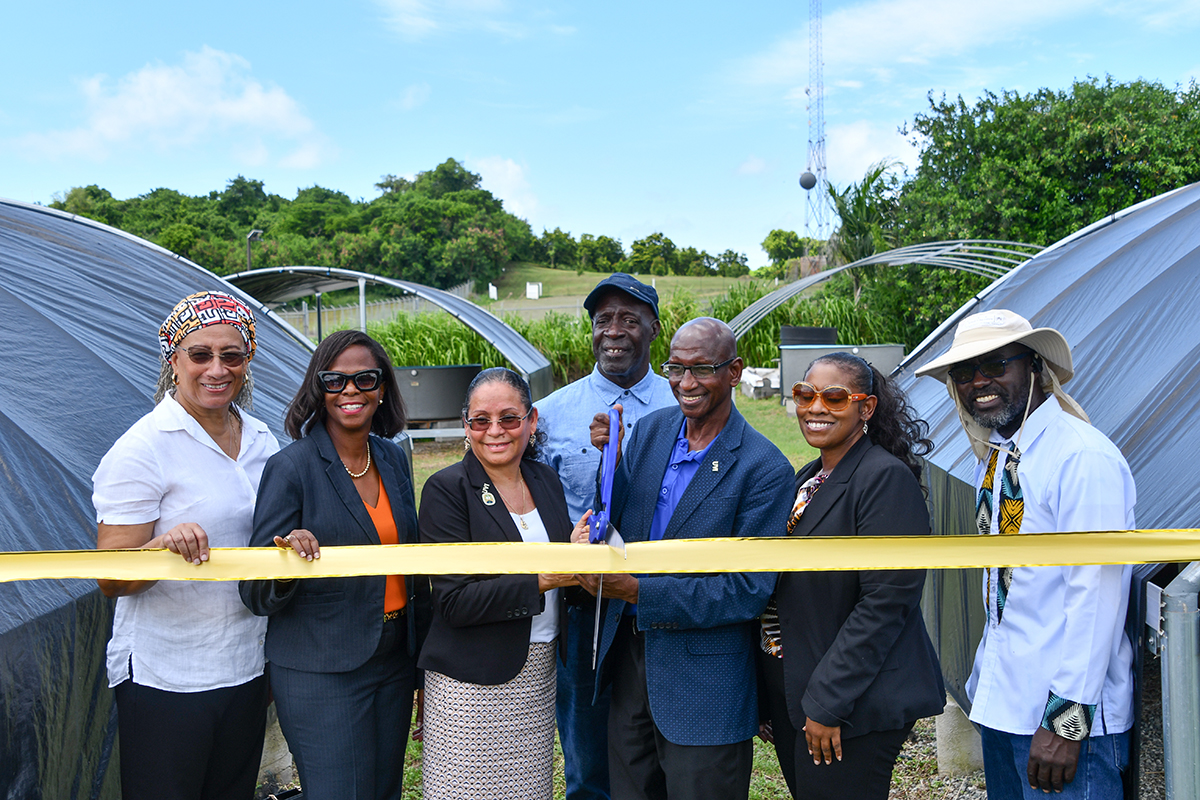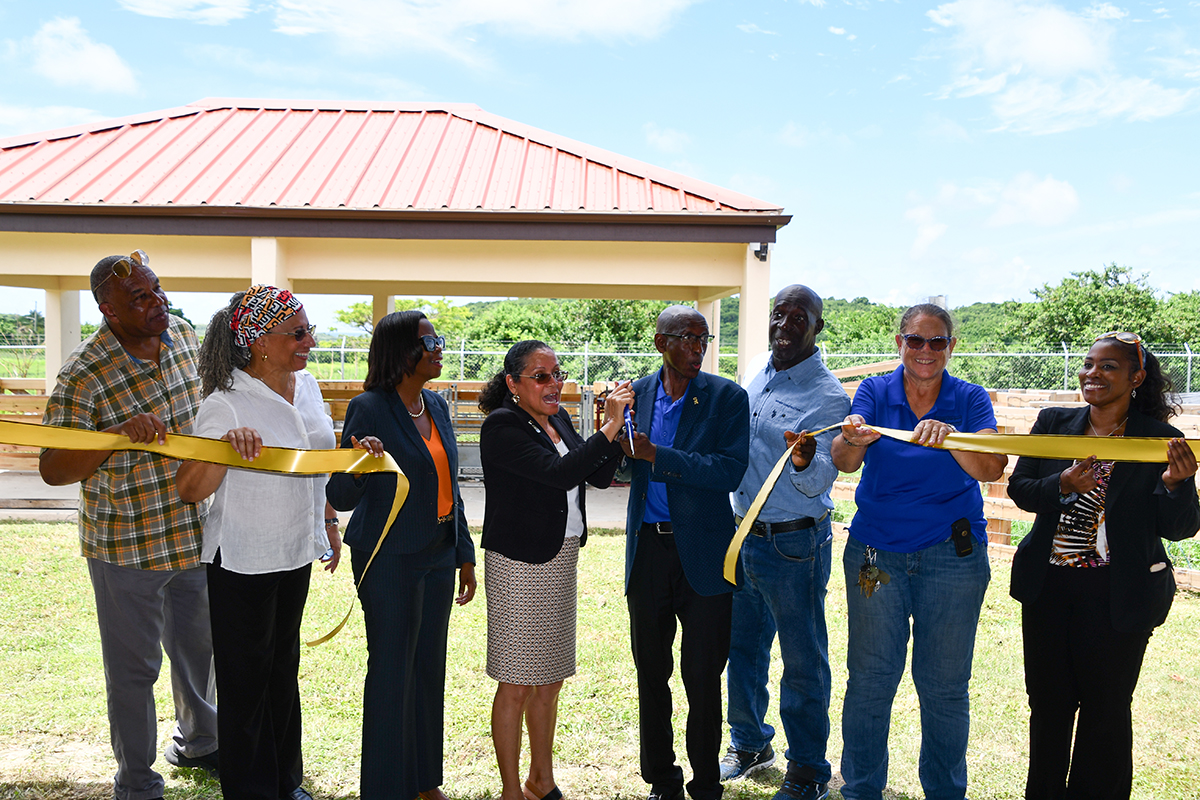
The University of the Virgin Islands Agricultural Experiment Station celebrated the relaunch of its Aquaponics and Small Ruminant Livestock Facilities with ribbon cutting ceremonies held last week on the Albert A. Sheen Campus on St. Croix. These facilities, damaged by the 2017 category five Hurricanes Irma and Maria, halted research activities in these areas at the University.
Aquaponics Facility
“Having this facility back in operation means that full research work will resume at the Agricultural Experiment Station in aquaponics, an area that truly puts UVI on the global map,” said Dr. Usman Adamu, UVI dean and director of the School of Agriculture, adding that these facilities fulfill the University’s mission as a land-grant institution that discharges its duties to conduct research, teaching and extension. Through extension, land-grant institutions direct their resources to address public needs. “Our commitment to rebuilding this facility expresses our continued commitment to agriculture and agricultural research as a land-grant institution," said Dr. Adamu.
“The farmers in the Virgin Islands are facing a variety of challenges that affect agriculture and food production in the territory, from natural disasters such as droughts and hurricanes to labor shortages and the high cost of animal feed,” he said. “The University’s work and expertise in aquaponics with this new facility and a team of experts will benefit local and regional communities.”
The University used just over $600,000 to repair the facility, with most of the funding coming from Disaster Recovery Funds. Mence Construction was the contractor that performed the renovations.

Director of the Office of Disaster Recovery Adrienne Williams-Octalien joined the ribbon cutting to celebrate the win. “There is so much that goes into every single thing that we do, and it really requires us to celebrate the wins because if you don’t celebrate the wins, it becomes tedious and hard,” Williams-Octalien said. “The mission and the vision of disaster recovery is to rebuild a resilient Virgin Islands. That is what this project represents to me—resiliency. Food, conservation, sustainability, these are all the commitments and necessary steps to being prepared so that when the disaster strikes, we have a plan.”
Dr. Henry Awika, interim assistant director and research assistant professor of Horticulture and Aquaculture with the School of Agriculture, guided participants on a tour of the facility. He said he expects work to complete the facility will take about three to four months as all the funds are currently in place. The renovated aquaponics facility will most likely produce tilapia with nutrient rich waste from the fish being used for farming. There are six aquaponics stations, and the tanks can accommodate 600 fish at a time.
Small Ruminant Livestock Facility
Sue Lakos, UVI Animal Science research analyst, welcomed attendees of the ribbon cutting ceremony for the Small Ruminant Livestock Facility (SRLF). The new facility has three steel frame structures: a barn office, a hay barn, a scale house, and sheep pens and pastures. The (SRLF) has two breeds of sheep, the St. Croix White Hair Sheep, which was developed on the island to meet the needs of the St. Croix farmers and the Dorper Cross Breed Sheep.
In March 2022, Mence Construction started work on the facility, which cost just over $650,000 with most of the funds being disaster recovery funds. “Having this facility means that research work will resume at the Agricultural Experiment Sation in animal science with small ruminant livestock meaning sheep and goats,” said Dr. Adamu, who noted a growing interest in the farming community on St. Croix.
Research at the University’s School of Agriculture covers animal sciences, community development, agricultural economies, soil sciences, the profitability of raising sheep and identifying the best breeds to thrive in the territory.
“We are so excited to have this new facility. Farmers in our community face so many different challenges,” said Dr. Adamu. “We are hoping that with this new facility and a team of scientists and experts, the University is ready the help accomplish our land-grant mission in animal science to positively impact farmers in the territory and the region.”
Dr. Adamu invited prospective students interested in agriculture and the animal sciences to enroll at UVI to take advantage of 16 programs to earn an associate degree, bachelor of science degree or a certificate. For more information visit https://soa.uvi.edu.
For more information and media inquiries, contact pr@uvi.edu.